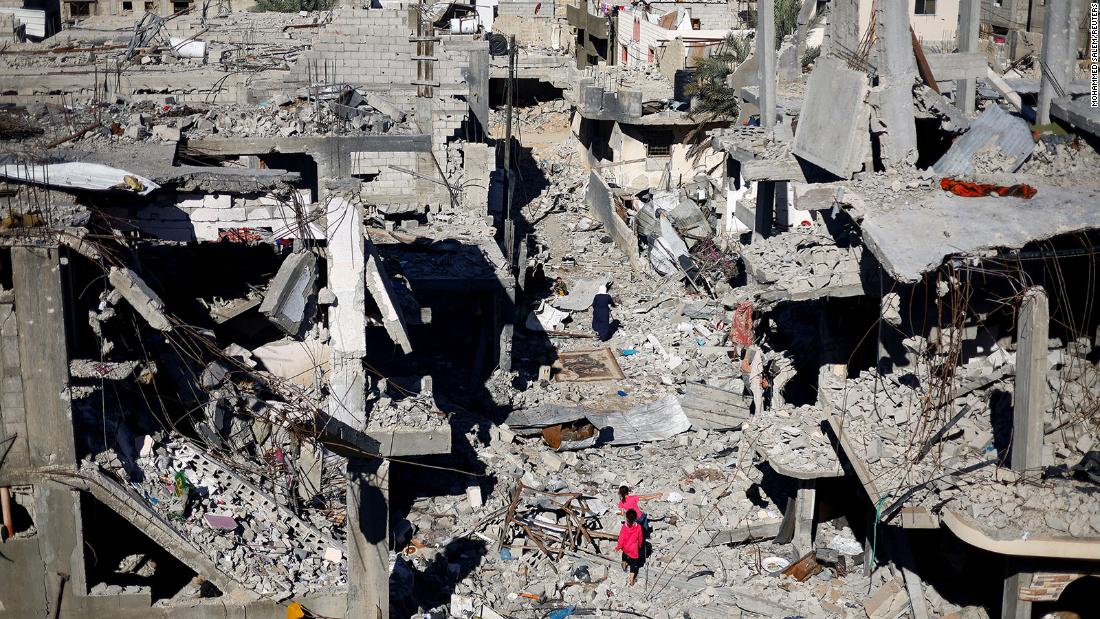
Both Israel and Hamas may have a lot to gain from an extension of the current truce. But experts say the eventual resumption of Israel’s military campaign in the Gaza Strip is inevitable.
The pause in fighting between Israel and Hamas — which has seen the militant group release hostages abducted on October 7 in exchange for Palestinians held in Israeli prisons — has now entered its sixth and potentially final day. Yet negotiators are working towards another extension, which could see the release of more hostages and prolong the break in the Israeli military’s campaign in Gaza.
For Israel, an extension means the return of tens of more hostages, which is particularly important for Prime Minister Benjamin Netanyahu who has come under intense pressure from the Israeli public to bring the hostages home. For Hamas, it offers a respite from fighting, a chance to regroup and benefit from the aid gradually making its way into the besieged territory.
Over the first five days of the truce, Hamas released 81 hostages, primarily women and children. Roughly 240 hostages were kidnapped during the Hamas attack on Israel.
Israel has released 180 Palestinian women and minors from prison, many of whom were detained and never charged.
“The main interest (for Israelis) is in getting those hostages home,” Gershon Baskin, a former Israeli hostage negotiator who once acted as a channel to Hamas, told CNN. “The whole country is glued to the television watching them transported in Red Cross cars and then landing in Israel.”
For Hamas, Baskin said, there is no need to hold civilian hostages. “It is a burden on their logistics,” he said, adding that they likely only want to keep Israeli troops as hostages. Israel has not said how many of its soldiers are being held by the militant group, but Baskin said there is little expectation that Hamas will release them as part of the current deal.
With a truce extension, Hamas may also be hoping that international pressure will pile on Israel to avoid a resumption of the war, Baskin said while noting that Israeli society is overwhelmingly supportive of a conflict that eliminates Hamas once and for all.
A poll of the public in Israel conducted earlier this month by the Israel Democracy Institute showed that a majority of respondents believe “Israel should negotiate immediately with Hamas over the release of the hostages in Gaza, but should not halt the fighting.”
Some ministers in Israel’s extreme right-wing government are going to greater lengths to ensure fighting resumes. Israel’s minister of national security, Itamar Ben-Gvir, on Tuesday threatened to break up the ruling coalition if the war ends.
But negotiations are likely complicated by reports that Hamas is not in possession of all the hostages. A diplomatic source briefed on the negotiations told CNN on Monday that more than 40 hostages are not currently held by Hamas, and CNN has previously reported that an estimated 40 to 50 hostages were held by Palestinian Islamic Jihad or other groups or individuals.
Israel believes 159 hostages are still in Gaza, Netanyahu’s office told CNN Wednesday.
Baskin said it is extremely unlikely that after seven weeks, Hamas cannot locate the rest of the hostages, adding that the group is likely propagating that news to stall the negotiations.
“It’s a delay tactic on the part of Hamas,” he said, adding that the group is too powerful and too centralized in the enclave to lose sight of the hostages.
This post was originally published on this site be sure to check out more of their content.






